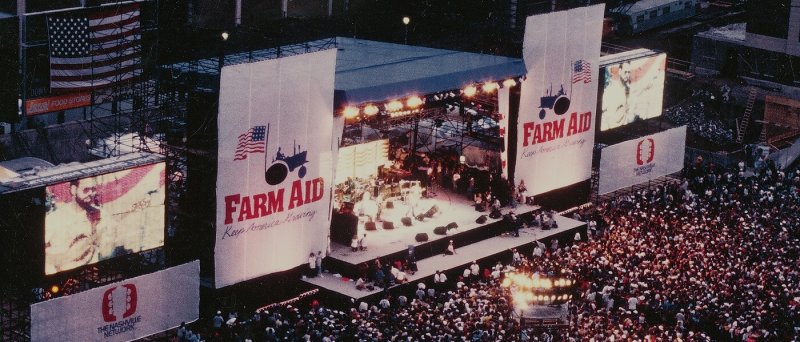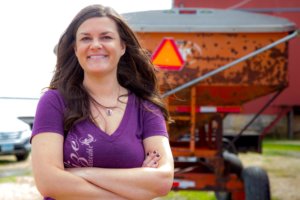Even though most US farmers grow genetically engineered crops, for example, Farm Aid advocates the development of “alternative supply chains that help farmers meet growing demand for non-GMO products and avoids [sic] GMOs in our sourcing.” The group also hopes to “build demand for non-GMO food.” These goals are fueled by the Farm Aid’s belief that crop biotechnology is key to corporate control over agriculture:
Twenty years ago, the first GMO seeds hit the market. In the decades that followed – as more GMO varieties were adopted and the seed sector rapidly consolidated – ethical, political, legal, environmental, economic and social concerns for the technology have emerged. While many farmers say they are pleased with GMO varieties, many others are disappointed, finding mixed results or facing new problems in the extremely concentrated and corporate-dominated seed sector.
Farmer and science writer Michelle Miller, known to her fans as “The Farm Babe,” attended the 2019 Farm Aid concert in Wisconsin. On this episode of Talking Biotech, Miller recounts her experience to host and plant geneticist Kevin Folta. Besides attendees sporting shirts that read “f*** Monsanto,” Miller says she witnessed an event staffed by well-meaning people concerned about family farmers, who ultimately did more to spread misinformation about modern agriculture than anything else.
I attended with hopes to have a chat with the Farm Aid higher ups or the artists to explain that the kinds of operations perceived as “corporate” or “factory” farms are still run by family farmers. And they oftentimes have the same struggles as the little guy. Unfortunately I didn’t get that chance to talk to them ….
Michelle Miller is a farmer and science writer covering agriculture, genetic engineering and food safety. Follow her on Twitter: @TheFarmBabe and visit her website.
Kevin M. Folta is a professor in the Horticultural Sciences Department at the University of Florida. Follow professor Folta on Twitter @kevinfolta and email your questions to [email protected]
The Talking Biotech podcast, produced by Kevin Folta, is available for listening or subscription:
Apple Podcasts | Android | Email | Google Podcasts | Stitcher | RSS | Player FM | Pod Directory | TuneIn

































